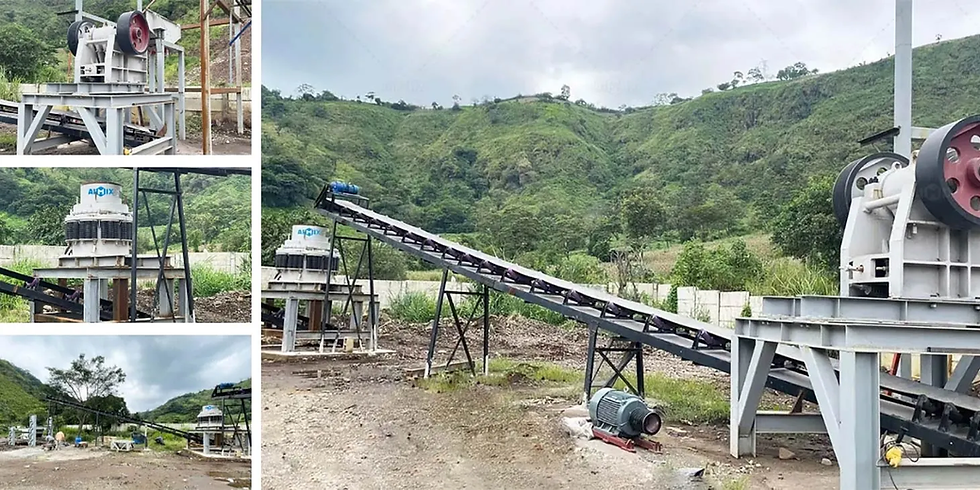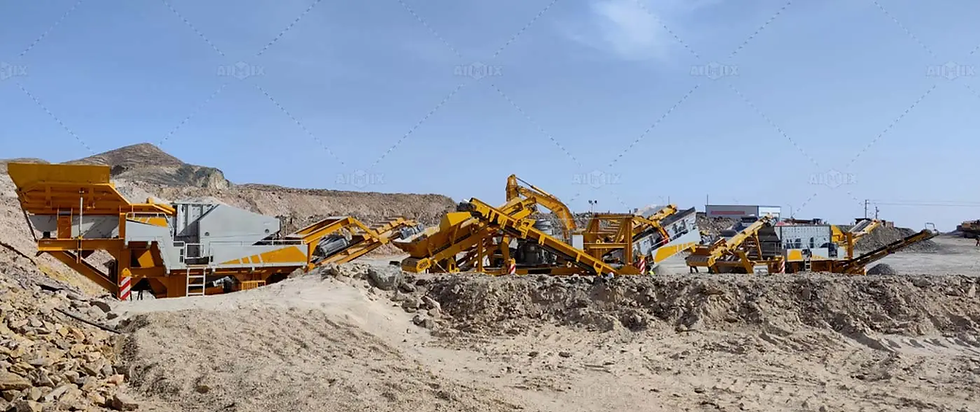Recycling Concrete & Asphalt: How Track Crusher Plants Maximize Profit
- aimixgroup china
- May 13
- 3 min read
With raw material prices escalating and landfill tipping fees growing ever more punitive, construction enterprises are under pressure to rethink traditional disposal and procurement practices. Instead of trucking old concrete and asphalt to waste facilities while sourcing virgin aggregate at a premium, the industry is shifting toward a closed-loop recycling model—a strategy not only environmentally conscientious but demonstrably more profitable. At the epicenter of this paradigm shift stands the track crusher plant, a machine purpose-built to dismantle outdated logistics and reshape profit margins.
Economic Imperative of On-Site Recycling
Rising Costs of Raw Materials and Landfill Fees
Global infrastructure expansion has placed crushing demand on quarry-sourced aggregates, pushing unit costs for virgin materials to record highs. Simultaneously, landfill regulations have stiffened, with some urban municipalities levying up to $150 per ton to dump inert demolition waste. These costs compound on every project, especially in metropolitan zones where job site access and material logistics are already constrained.

Forward-looking contractors now recognize that hauling broken concrete and asphalt to distant landfills is an economic deadweight. Recycled aggregates, when produced at the demolition site itself, eliminate double logistics—both the expense of removal and the cost of resupply. In hard numbers, this translates to thousands saved per job, and millions over time for high-volume operators.
Economic Benefit of Reprocessing Materials In Situ
A track-mounted crusher plant transforms waste into usable commodity. Reprocessing demolition debris directly where it falls not only avoids costly transportation but creates a marketable material from what would otherwise be a financial liability. Crushed recycled aggregate—when graded properly—can be reused for sub-base, road fill, or even new concrete production, depending on local codes.
This shift from linear to circular consumption models maximizes economic yield. Contractors no longer hemorrhage capital through disposal and repurchase. Instead, they pivot from consumer to producer—a critical advantage in low-margin bidding wars.
The Strategic Role of Track Crusher Plants
Mobility and Adaptability in Constrained Job Sites
Track crusher plants are engineered with hydraulic mobility, allowing them to crawl into tight, urban environments where fixed crushing infrastructure is logistically or legally impossible. From back alleys to high-density construction zones, they position themselves alongside the debris, eliminate the need for material relocation, and begin processing within minutes of setup.
This hyper-mobility means fewer delays, reduced fuel expenditure, and enhanced job site fluidity. As projects expand, the quarry crusher machine moves with them, creating a seamless crushing ecosystem. No permits. No haul roads. Just immediate production.

Efficiency in Reducing Aggregate to Resale-Grade Material
Modern track crushers utilize intelligent control systems, adjustable jaw or impact mechanisms, and onboard screening units to ensure consistent particle gradation. This precision ensures the recycled material meets stringent specifications, making it not just usable, but desirable.
Equipped with magnetic separators and dust suppression systems, these machines deliver a clean, sorted output—ready for resale or reuse. For companies looking to add aggregate production to their revenue streams, this capability is transformative.
Unlocking Profit Through Closed-Loop Crushing
Revenue Recovery Through High-Grade Recycled Output
Every ton of crushed concrete or asphalt produced on site is a ton that doesn’t need to be purchased or transported. This direct material substitution immediately lifts profit margins. More significantly, when the recycled product exceeds base-grade, it can be sold to third parties—converting waste into revenue.
Contractors can also offer recycling as a service, bidding on demolition projects not as disposal jobs, but as material recovery ventures, drastically altering the value proposition they bring to clients.
Operational Autonomy and Reduction in Transport Costs
Track crusher plants grant independence from third-party crushing services and dump site scheduling. The portable crusher plant put the power of production in the operator’s hands, eliminating delays and giving tighter control over the project timeline.
This autonomy leads to leaner operations. With fewer subcontractors, reduced machinery rental, and drastically minimized transportation needs, businesses extract more value from each work hour. The result is a streamlined operation with fewer moving parts and higher profitability per cubic yard.
Track crusher plants are not auxiliary tools; they are strategic assets in modern construction economics. In an industry squeezed by costs and governed by speed, they provide an unequivocal edge—turning debris into dollars with every pass of their crushing jaws.



Comments